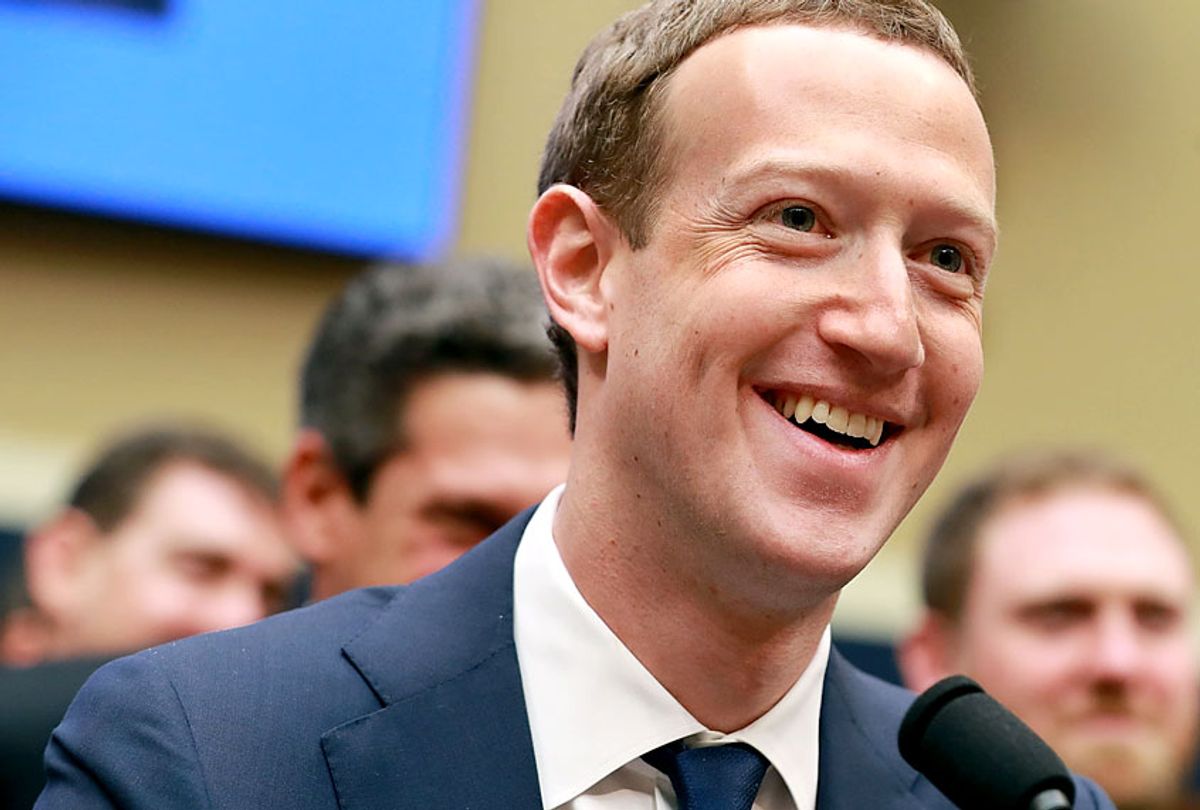During an appearance on Fox News, Facebook CEO Mark Zuckerberg criticized Twitter for fact-checking President Donald Trump's tweets and vowed that his social network would not do the same to politicians even though it already fact-checks other posts.
Zuckerberg said he disagreed with Twitter's decision to add a fact-check to Trump's false tweets alleging that made-up cases of fraud would occur if California expanded mail-in voting. Mail-in voting is already widely used around the country, and there is no evidence linking it to fraud. Zuckerberg made the comments to Fox News after President Donald Trump vowed to sign an executive order cracking down on social media, though it is unclear what power he actually has to do so.
"We have a different policy than, I think, Twitter on this," Zuckerberg said. "I just believe strongly that Facebook shouldn't be the arbiter of truth of everything that people say online. In general, private companies probably shouldn't be – especially these platform companies – shouldn't be in the position of doing that."
But Facebook already employs an army of third-party fact-checkers that police misinformation on the platform. The network simply makes an exemption for politicians, which allows them to spread misinformation without consequence.
Twitter CEO Jack Dorsey rejected Zuckerberg's talking points.
"We'll continue to point out incorrect or disputed information about elections globally. And we will admit to and own any mistakes we make," he wrote Wednesday. "This does not make us an 'arbiter of truth.' Our intention is to connect the dots of conflicting statements and show the information in dispute so people can judge for themselves. More transparency from us is critical so folks can clearly see the why behind our actions."
Dorsey added that Trump's tweets were flagged, because they "may mislead people into thinking they don't need to register to get a ballot."
The fact-check, which was specifically related to voting in California, where the social network is based, marked a rare action taken by Twitter to respond to the president's false claims. The company has repeatedly refused to act on false information spread by the president. It rejected pleas earlier this week from the widower of Lori Klausutis — a former congressional aide at the heart of a baseless Trump conspiracy theory alleging MSNBC host Joe Scarborough's involvement in her death — for presidential tweets to be deleted.
"We are deeply sorry about the pain these statements, and the attention they are drawing, are causing the family," a Twitter spokesperson said. "We've been working to expand existing product features and policies so we can more effectively address things like this going forward, and we hope to have those changes in place shortly."
The Twitter fact-check sent Trump into a frenzy. The president accused the social network of "interfering" in the election and "completely stifling" free speech. White House press secretary Kayleigh McEnany announced Wednesday that Trump would sign an executive order the following day "pertaining to social media."
The draft order, which has not been finalized, "chiefly seeks to embolden federal regulators to rethink a portion of law known as Section 230," The Washington Post reported. "That law spares tech companies from being held liable for the comments, videos and other content posted by users on their platforms."
The order directs federal agencies to reconsider the scope of the protections under Section 230, according to the report. The order would also channel complaints of bias on the social networks to the Federal Trade Commission, which would be encouraged to investigate whether the companies comply with their neutrality pledges.
"In a country that has long cherished the freedom of expression, we cannot allow a limited number of online platforms to hand-pick the speech that Americans may access and convey online," the draft order obtained by The Post reads.
The move is certain to face a court challenge, The New York Times reported.
"It's unclear what to make of this because to a certain extent, you can't just issue an executive order and overturn on a whim 25 years of judicial precedent about how a law is interpreted," Kate Klonick, a law professor at St. John's University, told the outlet, adding that it was "likely not going to be upheld by a court."
Federal courts have largely rejected allegations of bias at the social networks. A panel of the U.S. Court of Appeals for the D.C. Circuit on Wednesday rejected a lawsuit brought by the conservative legal group Freedom Watch and far-right activist Laura Loomer, who alleged that social networks were colluding to stifle conservative speech.
Trump's crackdown attempt is even more controversial given that he is the president. Klonick explained to Politifact that Trump's attacks show a misunderstanding of the First Amendment.
"The First Amendment was specifically designed to protect you against the government," she said. "The First Amendment protects Twitter from Trump. The First Amendment doesn't protect Trump from Twitter."



Shares